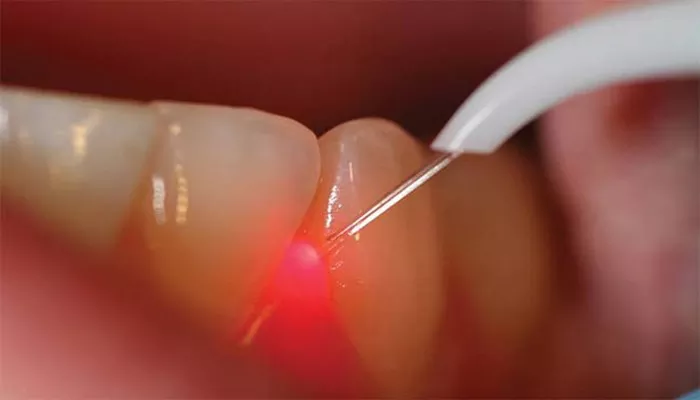Periodontal disease, commonly known as gum disease, affects millions of people worldwide and is a leading cause of tooth loss. Traditional treatments for this condition have included scaling and root planing, surgical interventions, and rigorous oral hygiene routines. However, recent advancements in dental technology have introduced lasers as a potential treatment option. This article delves into the effectiveness of laser therapy for treating periodontal disease, examining its benefits, limitations, and overall efficacy.
Understanding Periodontal Disease
Before exploring the role of lasers in treatment, it’s essential to understand periodontal disease itself. Periodontal disease is an inflammatory condition affecting the tissues surrounding the teeth, primarily caused by bacterial infections. The disease progresses through stages:
Gingivitis: The initial stage, characterized by inflammation and bleeding of the gums.
Periodontitis: A more advanced stage where the inflammation extends deeper into the supporting structures of the teeth, causing bone loss and gum recession.
Advanced Periodontitis: The most severe form, leading to significant bone loss, deep periodontal pockets, and potential tooth mobility.
SEE ALSO: How to Fix Teeth with Periodontal Disease
Traditional Treatment Methods
Traditionally, periodontal disease is managed through:
Scaling and Root Planing (SRP): A deep cleaning procedure to remove plaque and tartar from below the gumline.
Periodontal Surgery: Surgical interventions to access and clean deep periodontal pockets, reshape gum tissues, and regenerate lost bone.
Medications: Antimicrobial agents and oral antibiotics to control bacterial infection.
While these methods have proven effective, they often require multiple visits and can be invasive, causing discomfort and extended recovery times.
Laser Therapy: A Modern Approach
Laser therapy has emerged as a less invasive, innovative approach to treating periodontal disease. The procedure involves using a focused beam of light to target and eliminate infected tissues. Two primary types of lasers are used in periodontal treatment:
Diode Lasers: Often used for soft tissue procedures, including gum recontouring and removal of diseased tissue.
Nd Lasers: Used for both soft and hard tissue procedures, including the removal of infected periodontal tissue and aiding in bone regeneration.
How Laser Therapy Works
Laser therapy for periodontal disease generally involves the following steps:
Diagnosis and Preparation: The dentist assesses the patient’s periodontal condition and determines if laser therapy is appropriate. Local anesthesia may be administered to ensure patient comfort.
Laser Application: The laser is applied to the infected areas, targeting the diseased tissue while minimizing damage to the surrounding healthy tissue. The laser’s heat can also help to sterilize the area and promote healing.
Post-Treatment Care: Patients receive instructions on oral hygiene and may be prescribed antibiotics or other medications to support healing and prevent infection.
Benefits of Laser Therapy
Laser therapy offers several potential advantages over traditional periodontal treatments:
Minimally Invasive: Lasers require less cutting and stitching, reducing patient discomfort and recovery time.
Precision: Lasers can precisely target infected tissue, preserving healthy gum tissue and minimizing damage.
Reduced Bleeding: The laser’s heat helps to coagulate blood vessels, reducing bleeding during the procedure.
Faster Healing: Patients often experience quicker recovery times compared to traditional surgical methods.
Reduced Risk of Infection: The laser can help to sterilize the treatment area, lowering the risk of postoperative infections.
Limitations And Considerations
Despite its advantages, laser therapy is not without limitations:
Cost: Laser treatments can be more expensive than traditional methods, potentially limiting accessibility for some patients.
Availability: Not all dental practices have the necessary equipment or expertise to perform laser therapy.
Long-Term Data: While laser therapy shows promise, more long-term studies are needed to fully understand its efficacy and durability in treating periodontal disease.
Effectiveness of Laser Therapy
Several studies have evaluated the effectiveness of laser therapy for periodontal disease. Research suggests that laser treatment can be effective in reducing periodontal pockets, improving gum attachment levels, and promoting bone regeneration. However, results can vary depending on the type of laser used, the stage of periodontal disease, and the patient’s overall oral hygiene.
Combining Laser Therapy with Traditional Methods
In many cases, laser therapy is used in conjunction with traditional periodontal treatments. For instance, a dentist may perform scaling and root planing before applying laser therapy to enhance the overall outcome. This combination approach can maximize the benefits of both methods and provide a comprehensive treatment plan.
Conclusion
Laser therapy represents a significant advancement in the treatment of periodontal disease, offering a less invasive alternative to traditional methods. While it demonstrates promising results in reducing infection, promoting healing, and improving patient comfort, it is not a cure-all solution. The effectiveness of laser therapy can be enhanced when combined with traditional periodontal treatments and a commitment to maintaining excellent oral hygiene.
As research continues to evolve, laser therapy may become an increasingly integral part of periodontal disease management, providing patients with improved outcomes and a more comfortable treatment experience.

